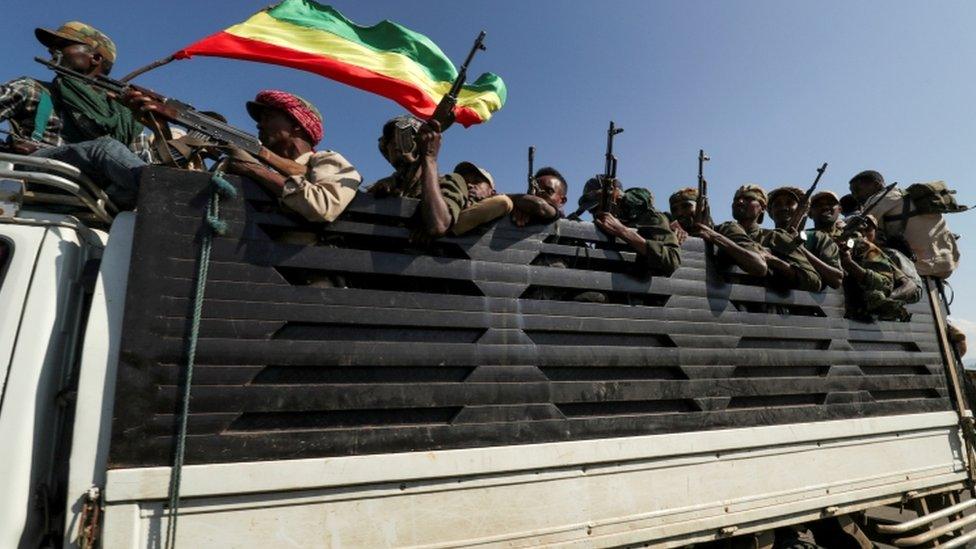Ethiopia's Tigray crisis: Four aid workers killed
- Published
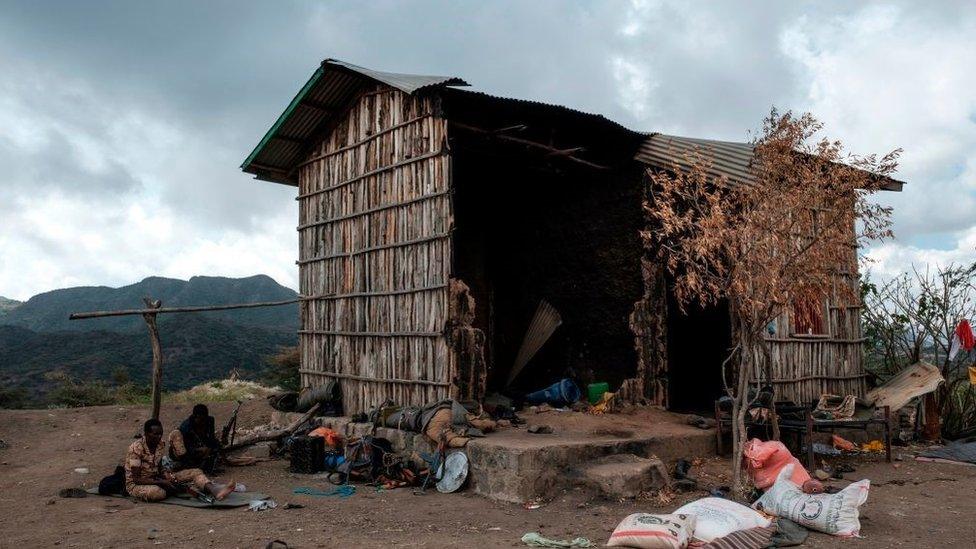
Government forces have been battling the Tigray People's Liberation Front in the region since 4 November
Four aid workers were killed last month during fighting in Ethiopia's Tigray region, aid agencies say.
The Danish Refugee Council (DRC) reported the deaths of three security guards, while the International Rescue Committee (IRC) said one of its staff members had been killed.
Government forces have been battling the Tigray People's Liberation Front (TPLF) in the region since 4 November.
The government says it is in control of Tigray and the conflict is over.
But TPLF leaders say they are still fighting on various fronts.
Meanwhile, the United States has accused Eritrean forces of entering Tigray, something both Ethiopia and Eritrea deny.
Hundreds, even thousands, of people are thought to have been killed in the conflict, while about 50,000 have fled to neighbouring Sudan.
What do we know about the deaths?
A lot of information about the killings is still unclear. The area is still under a communications blackout so it is difficult to verify information.
The DRC said it was "deeply saddened" over the deaths of three of its guards.
"Sadly, due to the lack of communications and ongoing insecurity in the region, it has not yet been possible to reach their families," it said.
Three consequences of the ongoing crisis in Tigray
The IRC said its member of staff had been killed in Hitsats Refugee Camp in Shire on 19 November, two days before government troops took control of the town.
"We are deeply saddened by the tragic loss of our colleague; our in-country staff are the very heart of our work and are key in our ability to provide support and assistance to our clients," the IRC said in a statement, adding that efforts to gather information continued.
What's the latest in Ethiopia?
Ethiopian troops captured Tigray's capital, Mekelle, from the TPLF on 28 November, but fighting has reportedly continued in parts of the region.
The Ethiopian government on Friday denied the conflict was preventing aid reaching civilians.
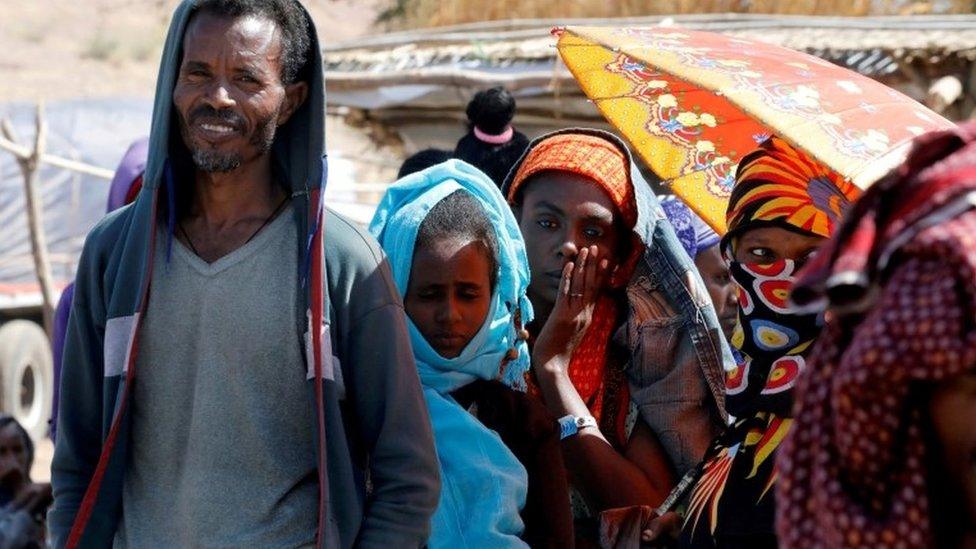
About 950,000 people have been displaced
Aid agencies say blocked access, delays and violence against staff are preventing aid deliveries to the region.
In response, a statement from the office of Prime Minister Abiy Ahmed said: "Suggestions that humanitarian assistance is impeded due to active military combat... within the Tigray region [are] untrue."
Such statements undermine efforts to stabilise the region, it added.
Mr Abiy said last week that federal troops had not killed a single civilian in their offensive on Tigray.
Civilians fleeing fighting in Tigray last month told Reuters news agency that they had seen bombing by government warplanes, shooting on the streets, and people being attacked with machetes.
What is the US saying about Eritrea?
The US has called for the withdrawal of Eritrean forces from Tigray. The US believes the Eritrean military - which has found common cause with Mr Abiy over the TPLF - entered the region after it came under rocket fire.
"We are aware of credible reports of Eritrean military involvement in Tigray and view this as a grave development," a State Department spokesperson said.
"We urge that any such troops be withdrawn immediately."
Both Ethiopia and Eritrea have denied that Eritrean troops have been involved in fighting.
Nearly 100,000 Eritrean refugees have been living camps in Tigray. They fled political persecution and compulsory military service, long before the current conflict.
Ethiopia's government said on Friday it was returning a large number of "misinformed" Eritrean refugees to Tigray after they had fled to the capital Addis Ababa - a moved which has alarmed the UN.
What is the conflict about?
The conflict started on 4 November, when Mr Abiy ordered a military offensive against regional forces in Tigray.
He said he did so in response to an attack on a military base housing government troops in Tigray.
The BBC’s Anne Soy reports from a refugee camp on the Sudan-Ethiopian border
The escalation came after months of feuding between Mr Abiy's government and leaders of Tigray's dominant political party, the TPLF.
For almost three decades, the party was at the centre of power, before it was sidelined after Mr Abiy took office in 2018 in the wake of anti-government protests.
Correction: We have removed an erroneous quote attributed to the UNHCR from this story
- Published8 December 2020
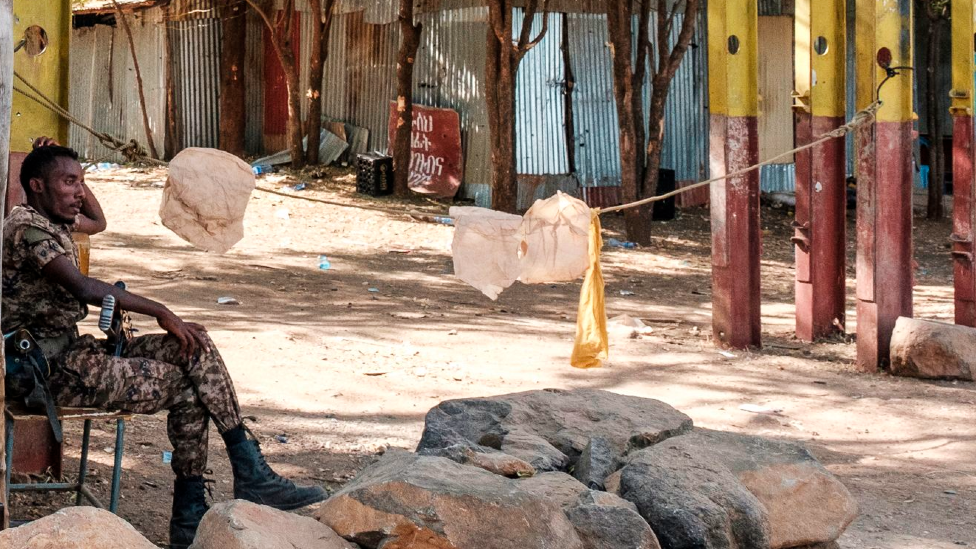
- Published3 December 2020
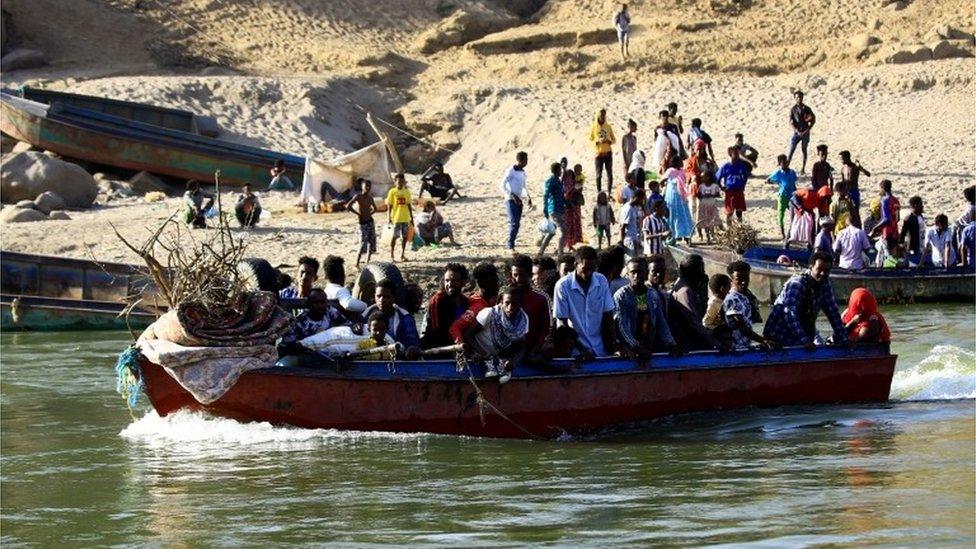
- Published6 December 2020
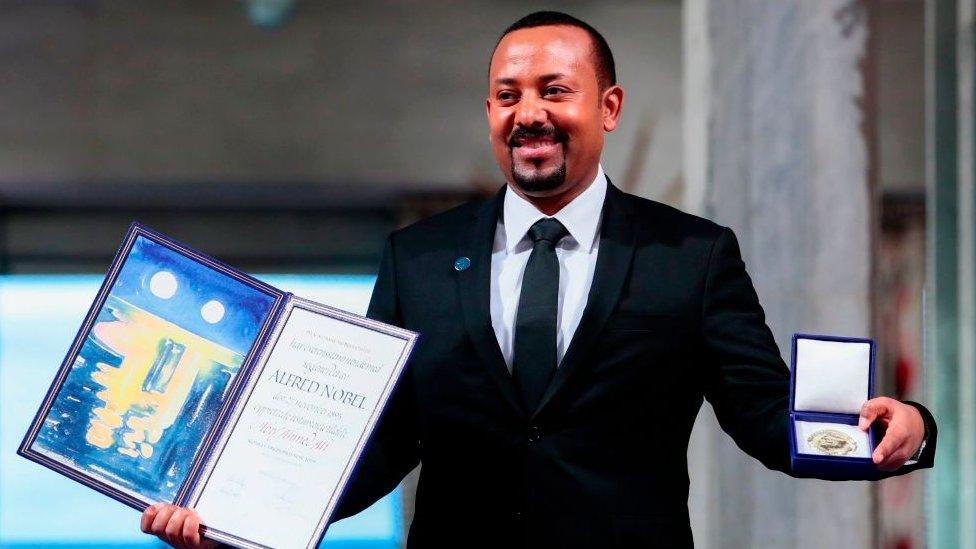
- Published5 December 2020
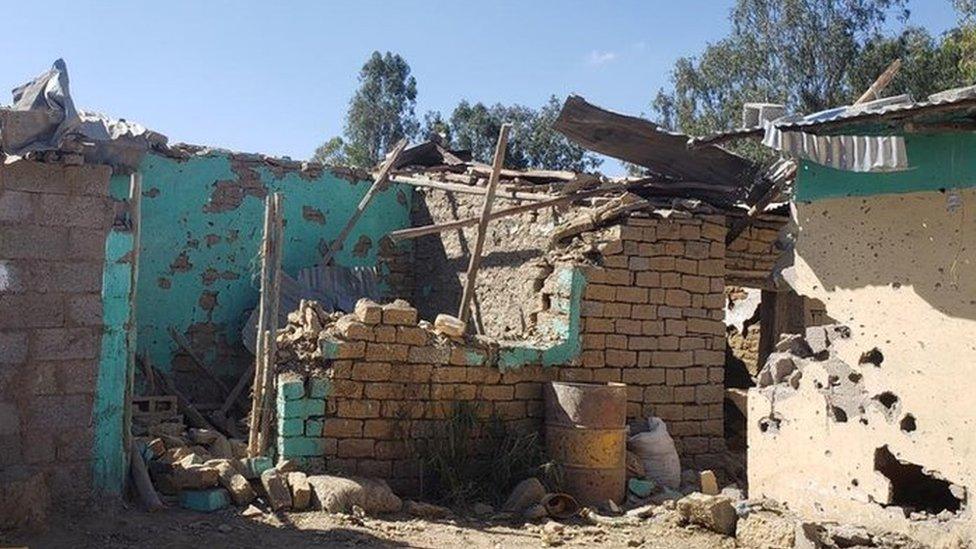
- Published29 June 2021
